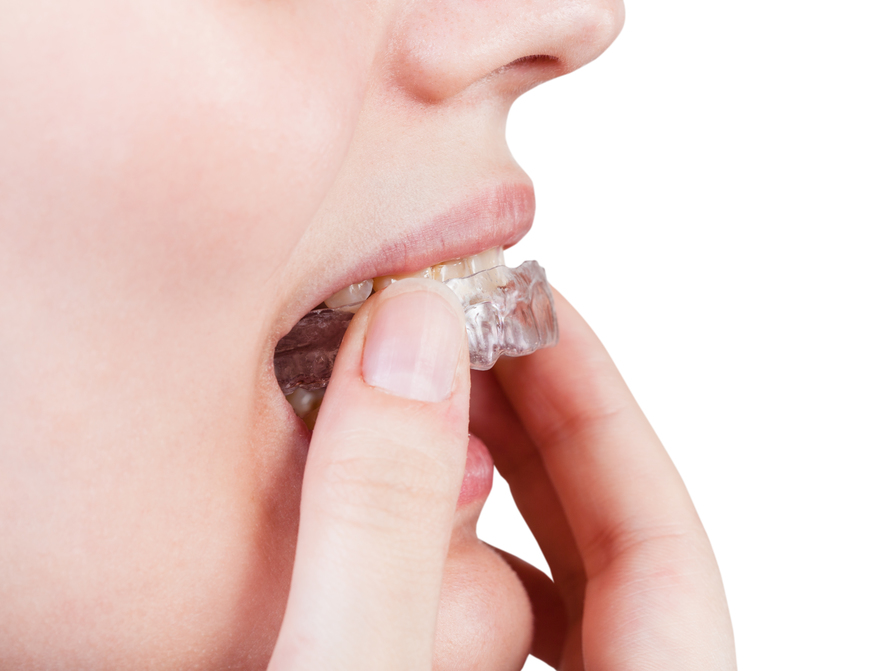Sometimes, you just can’t get away from stress. And if you’re able to manage it during the day, it can rear its ugly head at night. Having trouble sleeping, or experiencing unpleasant dreams when you finally do get to sleep, are two common ways stress manifests itself at night. But another sleep-related symptom of stress – teeth grinding (also called bruxism) – can cause permanent dental damage. Read on for tips to manage stress from Dr. Andy in Parma, OH (just outside of Cleveland).
Sometimes we unconsciously grind our teeth while we’re awake, but more often than not, bruxism occurs while we’re asleep. Bruxism can occur as often as 40 minutes out of every hour during sleep and produce up to 250 pounds of force per square inch. Over time, the continued pressure can cause a variety of problems, including:
- Micro cracks and broken fillings, which can lead to nerve damage
- Teeth ground down to the dentin, causing sensitivity to hot and cold
- Receding gums
- Loose teeth
How do you know if you suffer from bruxism that occurs while you sleep? When you wake, you may experience one or more of these tell-tale signs:
- Increased tooth sensitivity
- Jaw or face pain or soreness
- Tired or tight jaw muscles
- Pain that feels like an earache, though it’s actually not a problem with your ear
- Dull headache originating in the temples
- Damage from chewing on the inside of your cheek
- Indentations on your tongue
Left untreated, you could even experience more severe symptoms, such as:
- Teeth that are flattened, fractured, chipped or loose
- Worn tooth enamel, exposing deeper layers of your tooth
Stress is one of the most frequent causes of bruxism, But it’s not the only one. The shape of the jaw and the shape and alignment of teeth can also be contributing factors. Other causes include certain medical disorders, drugs, and possibly some genetic inheritance. Fortunately, braces and other dental appliances treatments can minimize or eliminate the dental damage bruxism can cause.
Braces and Bruxism
If improper tooth alignment, or malocclusion, is the primary factor for bruxism, help is as near as your orthodontist. Braces can bring your teeth into their proper position, permanently eliminating the problem. Even if malocclusion is not to blame, braces can still effectively treat bruxism. Clear aligners, like Invisalign®, create a barrier between the top and bottom teeth, so even if grinding continues, it will not damage your teeth. (Note that if your tooth grinding is severe and you do decide to seek treatment with traditional braces or clear aligners, it’s possible that the problem will temporarily get worse before it gets better. This is most often due to slight irritation or discomfort as your teeth begin to shift towards realignment.)
If you currently wear metal braces, and if you feel like your bruxism is not improving, talk to your orthodontist, who can order a specialized night guard (also called occlusal splints) which you can wear over your braces. Night guards:
- Prevent the damage to teeth caused by bruxism
- Distribute grinding and clenching forces
- Relax your jaw muscles and improve the position of the jaw, which can relieve TMJ disorders, aching jaws, headaches and other related issues.
- Reduce pain, cuts, abrasions on the inner cheeks and lips that can occasionally be caused by braces.
Night guards can be used instead of braces to reduce the damage caused by bruxism. However, they should fit well and be durable enough withstand the pressure of grinding teeth. Your dentist or orthodontist can recommend the best options and products for you.
Tips for Reducing Bruxism by Reducing Stress
If your tooth grinding is caused by stress, making a few simple lifestyle changes may drastically alleviate the symptoms.
Seek out positive ways to reduce your stress. Add meditation, exercise, or your favorite music to your daily routine. Also, get as much natural sunlight as possible.
Don’t engage in emotionally stressful activities before bed. Unplug yourself from the social media an hour or two before bedtime, or give yourself permission to pay the bills in the morning.
Disconnect from your electronic devices an hour before bedtime. The light emitted by your phone, tablet, computer, or TV is disruptive to your sleep cycle, which can lead to stress.
Avoid caffeine and alcohol, which can also disrupt your sleep.
If your stress seems overwhelming or uncontrollable, contact a medical professional as soon as possible for other treatment options.
Schedule a Free Consultation
Concerned about the damage caused by grinding your teeth? Find out what you can do about it by scheduling a free consultation! Contact us online or call 440-842-8015.
Stay connected with Doctor Andy on Social Media!
Facebook | Twitter | Google+





